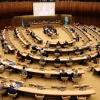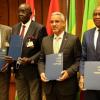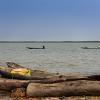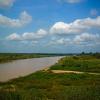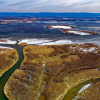Press Releases
Displaying Results 26 - 31 of 31
Can the oft-shared, yet increasingly scarce and most precious, resource that is water be a source of cooperation, rather than of conflict, among countries? If so, then how? As climate change brings prolonged droughts and more intense floods, how will Governments cope together? More than 20
Ministers from The Gambia, Guinea Bissau, Mauritania and Senegal have agreed to establish a legal and institutional framework for cooperation on the Senegal-Mauritanian Aquifer Basin (SMAB), a shared aquifer basin (groundwater reserve) on which 80% of their populations depend. In a context of
Results of the second Sustainable Development Goal (SDG) report on transboundary water cooperation, published today by UNECE and UNESCO (co-custodian agencies for SDG indicator 6.5.2) on behalf of UN-Water, suggests that not nearly enough operational arrangements for transboundary water cooperation
On 16 June, Guinea-Bissau became the 4th African country (45th party) to accede to the Convention on the Protection and Use of Transboundary Watercourses and International Lakes (Water Convention), whose secretariat is provided by UNECE. It is also a party to the Convention on the Law of the Non-
Ghana’s transboundary river basins, namely the Volta River basin (shared with Benin, Burkina Faso, Côte d’Ivoire, Mali and Togo – home to over 23 million people, with a population projected to more than double by 2050), Bia and Tano Rivers (shared with Côte d’Ivoire) and Todzie-Aka basin (shared
The use of material resources, fuelled by economic and population growth, urbanisation and societal changes, has increased more than ten times since 1900 and is set to double again by 2030. The annual global extraction of materials has increased from 27 to 92 billion tonnes since 1970, while the


